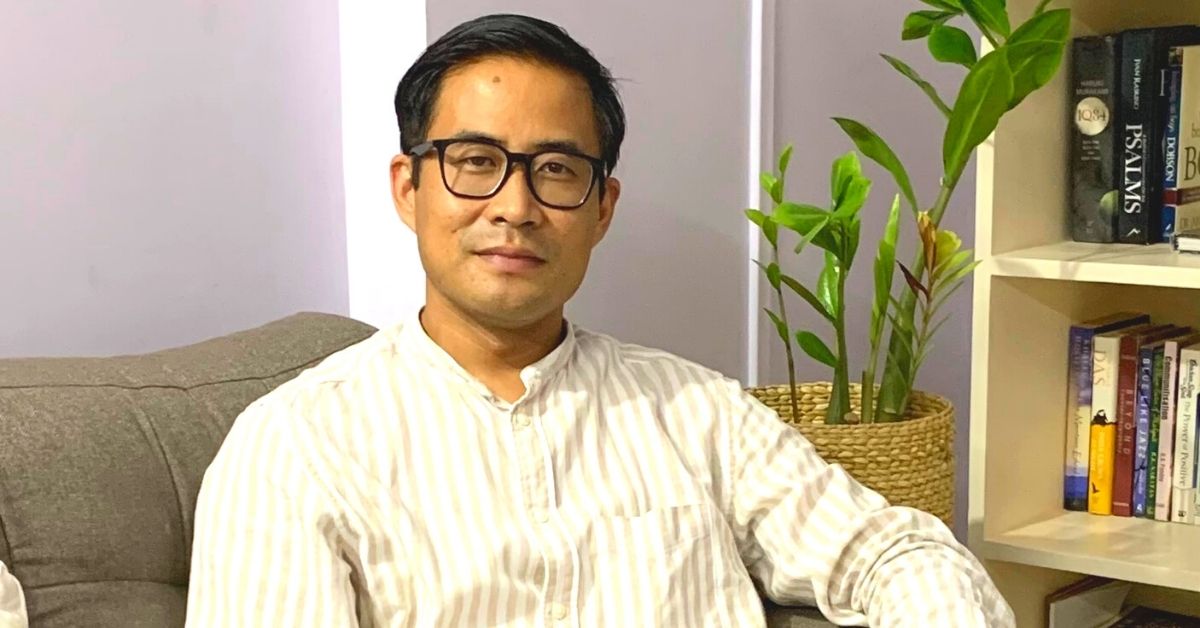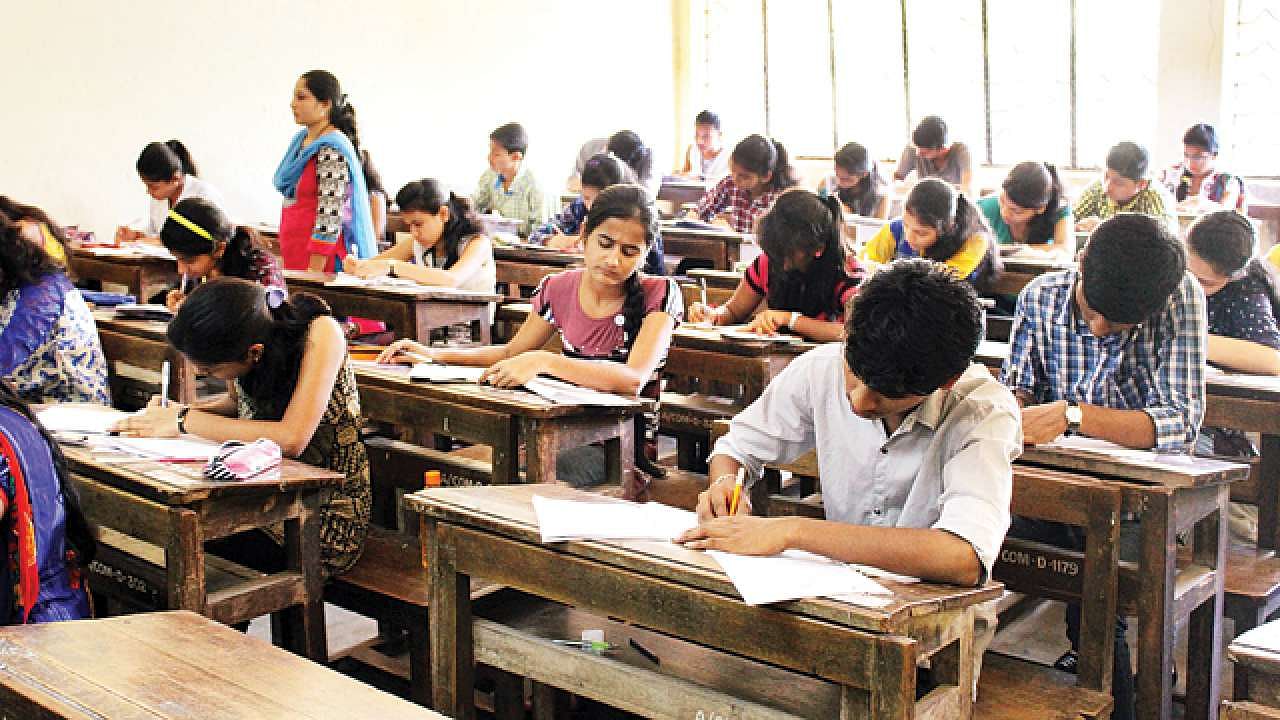‘I Won’t Be Pushing My Kids to Write CSE’: IRS Officer Speaks on UPSC Exams
Sashi Wapang Lanu, the Joint Commissioner, Central GST in Dimapur, opens up about why aspirants should not overthink passing the Civil Service Exam (CSE).

When Sashi Wapang Lanu cracked the renowned Union Public Service Commission-Civil Services (UPSC) exams in his third attempt, it was a one-way ticket to a much coveted permanent job in the Indian Revenue Service (Customs and Excise).
However, today, the 40-year-old 2009 batch officer, who currently serves as Joint Commissioner, Central GST in Dimapur, Nagaland, is quite clear that he will never push his two sons to write this or any other exam that secures them a government job.
“I will encourage whatever career path my children decide to choose. I will sit with them and help them see the pros and cons of the career paths that they are interested in. For my generation in Nagaland, we have been repeatedly pushed toward writing these exams. ‘At least write it once and see how it goes’ has been a common refrain of many Naga parents. I definitely won’t be pushing my boys to write the civil service exams (CSE) or telling them to even attempt the exams when I know they’re interested in other careers,” Sashi tells The Better India.
In a recent interaction with Asalie Peseyie, the CEO of Dimapur-based record label Infinity Inc, on the Shout Out Podcast, Sashi spoke of how after 12 years in government service, he feels that this isn’t the only way to be successful or find validation in life. He went on to say how people in Nagaland, where the premium on government jobs is high, shouldn’t glorify exams like the CSE and not think too highly of themselves for passing it.
Unfortunately, many from the frontier regions like Ladakh and Nagaland, where private sector jobs aren’t readily available, don’t have the luxury of choosing alternative career paths. They are pressured into wasting their best years preparing for exams like the UPSC or other State service exams by their families. In these parts, even larger communities create incentives for the same by glorifying these exams and those who pass them.
Although this is a similar problem in other parts of India, it’s more acute in regions where quality private sector jobs are crushingly limited. We, at The Better India, highlight some of the techniques UPSC CSE toppers employed or obstacles they overcame to pass these exams. While these articles do help aspirants in preparing for the exams, it’s imperative that alternative narratives surrounding the exams are encouraged more than the current status quo permits.
And who better to articulate one such narrative on competitive exams than a serving officer?
Seeking Validation in Life
Born in Mokokchung town, but raised in Kohima, Sashi lived in a household where both his parents worked in the government service. His father, an engineer with the State public works department, and mother, an employee of the education department, sent their son to Mount Hermon School in Darjeeling. Following school, he pursued a degree in electronics and communication from an institute in Bengaluru. Post college graduation in 2004, he worked as a lecturer in the Institute of Communications and Information Technology Mokokchung for around a year before making the pilgrimage many in India make to Delhi for UPSC exam preparations.
After clearing the exam in his third attempt, he was allotted the IRS (Customs and Excise) even though his rank was good enough to obtain a seat in the Indian Police Service (IPS). After 18 months of training at the National Academy for Customs, Indirect Taxes and Narcotics at Faridabad, he was posted at Port Blair in the Andaman Islands. In his 12-year career, Sashi has worked handling customs at the Kolkata Airport and the Directorate of Revenue Intelligence.
Despite a successful career in the IRS thus far, he argues, “I am privileged to have the opportunity to serve as an IRS officer. However, more than a decade into government service I’ve realised that especially in the context of Nagaland, people over glorify the civil services as a career choice. I am against glorifying any particular career as the only or best way to be successful or to find validation in life. I have often compared competitive exams to a story where all the animals of the jungle are being lined up and told that whoever climbs up the tree fastest wins. As much as the country needs to attract the best minds to join the bureaucracy, the civil services are not meant for everyone. Yet, in Nagaland, parents have placed undue pressure on a generation of children to try and fit into the UPSC/NPSC (Nagaland Public Service Commission) mould to crack these difficult exams.”
Every year, Sashi claims that not less than 15,000 Nagas appear for the NPSC for maybe around 50 to 100 vacancies. For UPSC, the numbers are even more mind boggling. “This in turn has led to frustration for many young people because your value as a person or the value of your job is always being measured by society only in terms of civil service exam success as the benchmark. This is why I made that remark in the first place,” he adds.
He continues, “No one can deny that those who crack the civil service exams have bettered lakhs of other candidates who sit for these exams. It took years of struggle, great effort and personal sacrifices for me to get through the exam. However, I don’t think one should forever bask in that glory of being successful in the exam. Instead, get on with the job at hand. Passing such a difficult exam should not be overly glorified. Passing the exam merely offers you the platform to do something. So, if you have to glorify things then shine a light on the positive changes or achievements attained as a civil servant for the public at large.”

Nagaland’s Tryst With Civil Services
Clearing the UPSC and getting into the UPSC is something many families in India want for their children. In frontier regions like Nagaland and Ladakh, however, this desire seems more acute. To understand why this is the case, Sashi looks back at his own family’s past.
“As soon as my father completed his engineering degree in the late 1970s, there was a government job waiting for him in Nagaland. Back then, government service was the only available career choice for Nagas as there was hardly any presence of a private sector. Other factors such as insurgency would have also played a role in suppressing the growth of the private sector. ‘Study hard if you want to get a government job or else you will have to go back to farming in the fields’ is what many generations were often told. A government job therefore was the only kind of employment my parents’ generation have seen,” he explains.
Times have changed and career options beyond government service are now a possibility even in Nagaland, and yet the thinking has not changed with the times.
“Today, the number of college graduates has increased manifold while available government jobs have decreased. No doubt the government needs to attract talented minds but this tendency of pushing all children to go for only government service is lopsided. It’s society at large which will suffer in the long run when other career avenues don’t develop,” he adds.
So, the officer’s suggestion to lessen our collective obsession with clearing exams like the UPSC is:
“Success stories of other career choices need to be highlighted and told as loudly as civil service success stories. In Nagaland there is a tendency to have mostly civil servants as role models. Why not celebrate entrepreneurs as role models too? We need to develop appreciation for all career choices. At the same time, we also have to take into account aptitude and capability when making career choices and not simply follow the crowd. For example, I never felt I had it in me to be a police officer. I just didn’t have the temperament and capability. So, while filling out my option of choice of services, I left out the IPS. By rank I was getting IPS but I never opted for it despite the fact that it is considered a prestigious and powerful job by society. I believe one needs a certain aptitude to work in the police.”
Having said that, it’s also important to note that exams like the CSE offer many aspirants the opportunity to climb up the social ladder or break the chain of poverty that may have haunted their families for generations.
But on a parting note, Sashi says, “For our generation, many lives have already been affected by this collective obsession for the civil services. However, I am hopeful that for our children we won’t burden them with this same obsession.”
(Edited by Yoshita Rao)
Like this story? Or have something to share? Write to us: [email protected], or connect with us on Facebook and Twitter.
If you found our stories insightful, informative, or even just enjoyable, we invite you to consider making a voluntary payment to support the work we do at The Better India. Your contribution helps us continue producing quality content that educates, inspires, and drives positive change.
Choose one of the payment options below for your contribution-
By paying for the stories you value, you directly contribute to sustaining our efforts focused on making a difference in the world. Together, let's ensure that impactful stories continue to be told and shared, enriching lives and communities alike.
Thank you for your support. Here are some frequently asked questions you might find helpful to know why you are contributing?













